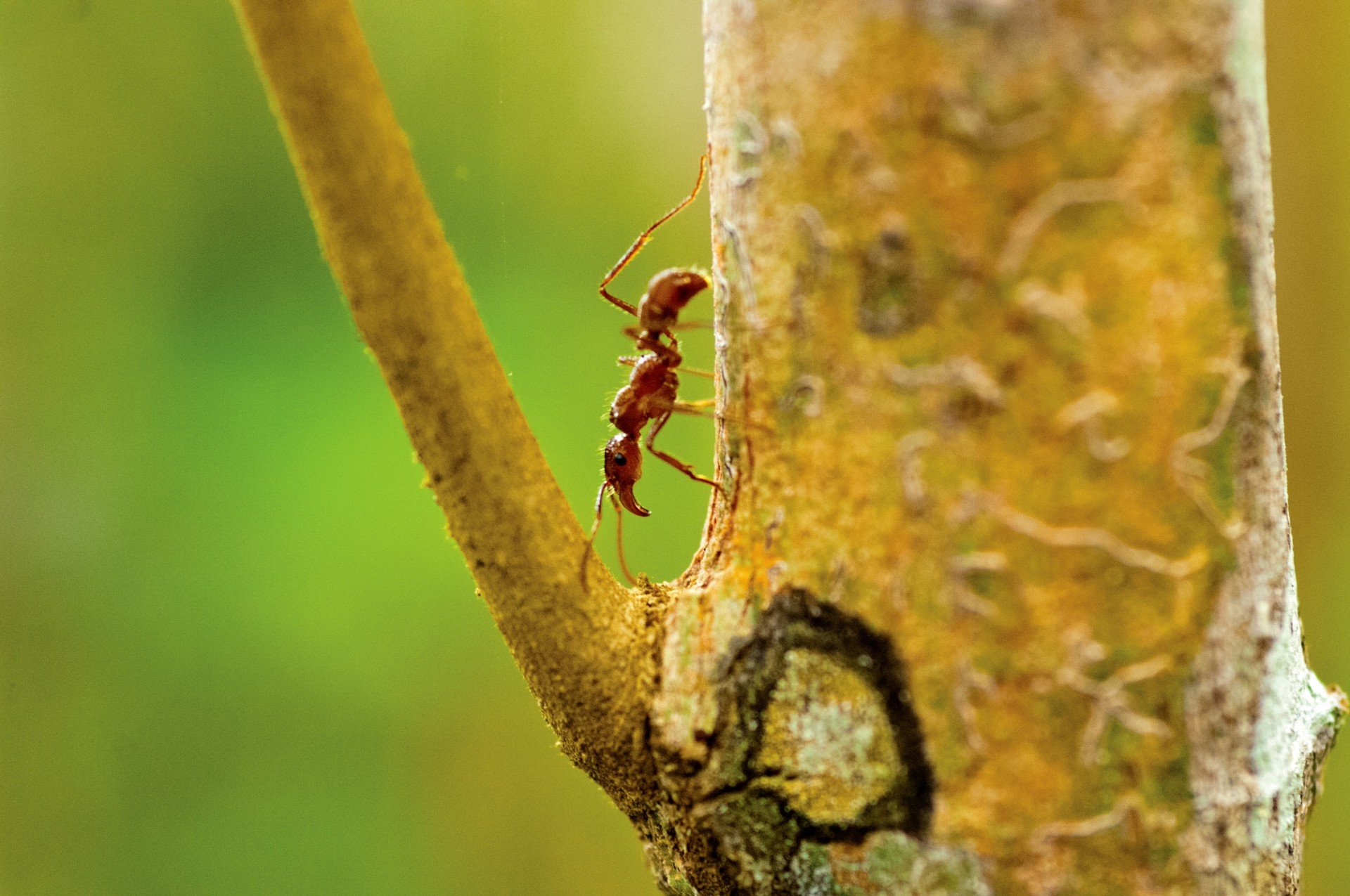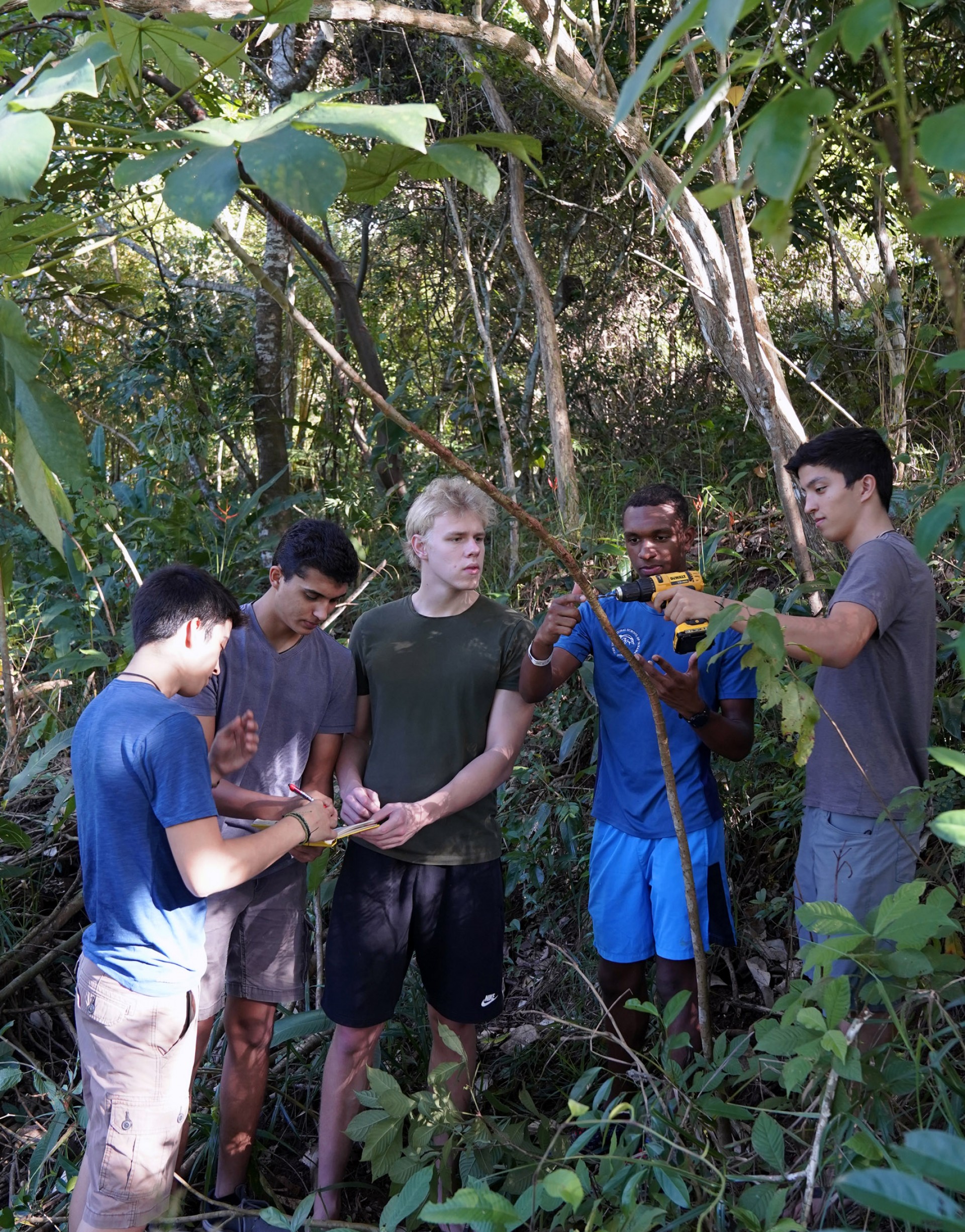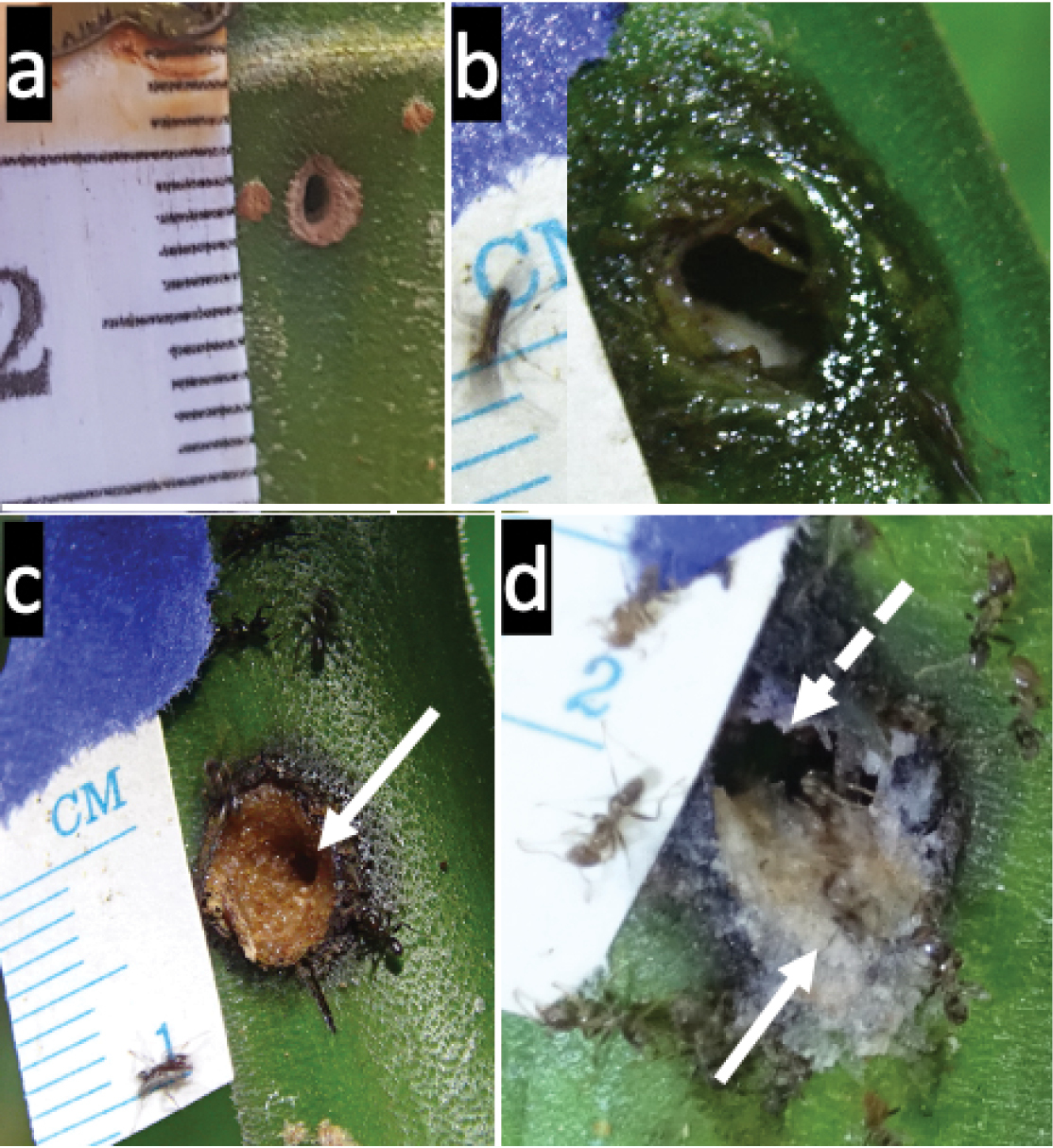
Ants are known to undergo extreme measures to save their own. Past studies have shown the industrious insects carrying wounded comrades back to the nest to heal and even exploding and sacrificing themselves to save their colonies from predators. Now, a team of young researchers in Panama has found an empathetic ant species that rapidly repair any damage to its host tree.
The events leading to the amazing discovery began during the height of the COVID-19 pandemic in mid-2020. To pass time during the lockdown, Alex Wcislo and his friends decided to shoot clay balls at trees with a slingshot. They targeted the flat, broad leaves of the slender Cecropia trees to make the task more challenging. Things were going well until one of the 9 mm (0.35 inch) clay balls accidentally hit the tree trunk, leaving a clean exit and entry wound.

Concerned that he had caused permanent damage, Alex returned to examine the tree the following morning. He was accompanied by his father, William Wcislo, an entomologist at the Smithsonian Tropical Research Institute (STRI). To their surprise, the hole had been completely patched up! Curious to find out what was going on, Alex and his friends enlisted in the STRI's volunteer program. After setting up the experiment parameters with William, the teens got to work.
They drilled holes in the Cecropia trees in the vicinity and then carefully documented what followed. The young scientists found that in 14 of the 22 cases, swarms of Azteca alfari ants instantly congregated in the damaged area. The hardworking insects instantly got to work and, using material from the stems, significantly reduced the size of the hole within two and a half hours. In most cases, the gap was completely sealed within 24 hours.
The small, sand-colored insects' harmonious relationship with the Cecropia trees has been known for many years. The trees provide the ant colonies with food and shelter. In return, the insects protect their leaves from herbivores. However, their repair skills — which researchers suspect have been honed fixing damage caused by the sharp toenails of the sloths and silky anteaters that frequent the trees — had never been seen before.

"Sometimes messing around with a slingshot has a good outcome," said Alex. "This project allowed us to experience first-hand all the intricacies behind a scientific study. All in all, it was a great learning experience, especially considering the difficulties associated with fulfilling this due to COVID-19."
Alex and his team, who published their findings in the Journal of Hymenoptera Research on December 30, 2021, still have one mystery to solve. They are not sure why the insects did not repair all the holes. Understanding this selective behavior is something they hope to explore in the future — stay tuned!
Resources: stri.si.edu, sciencealert.com
